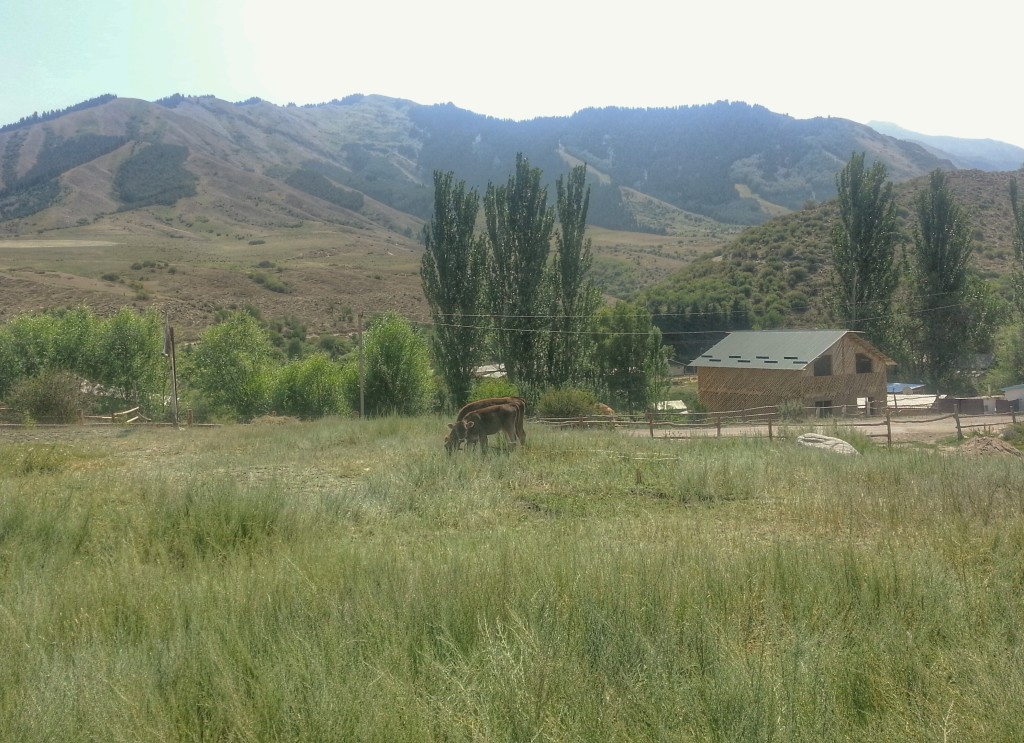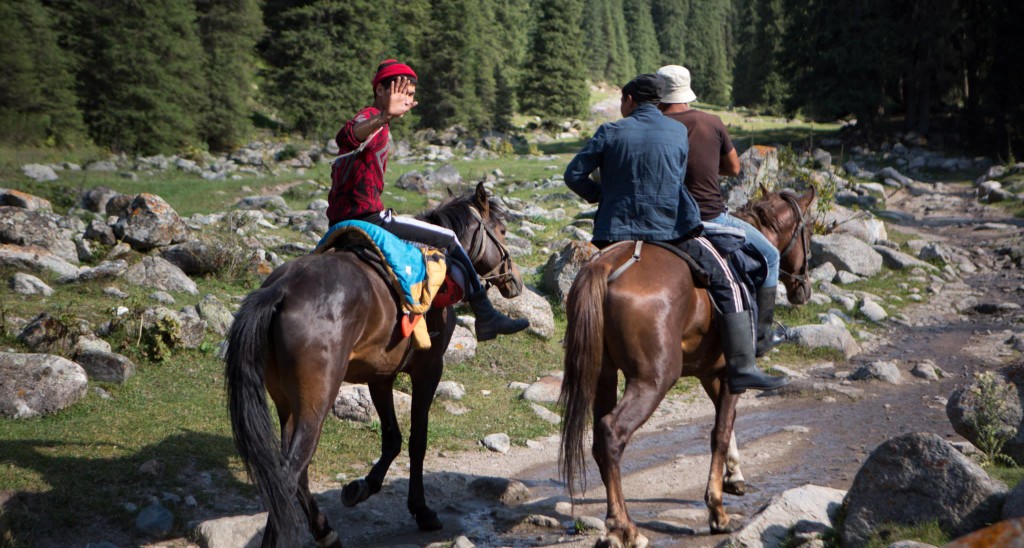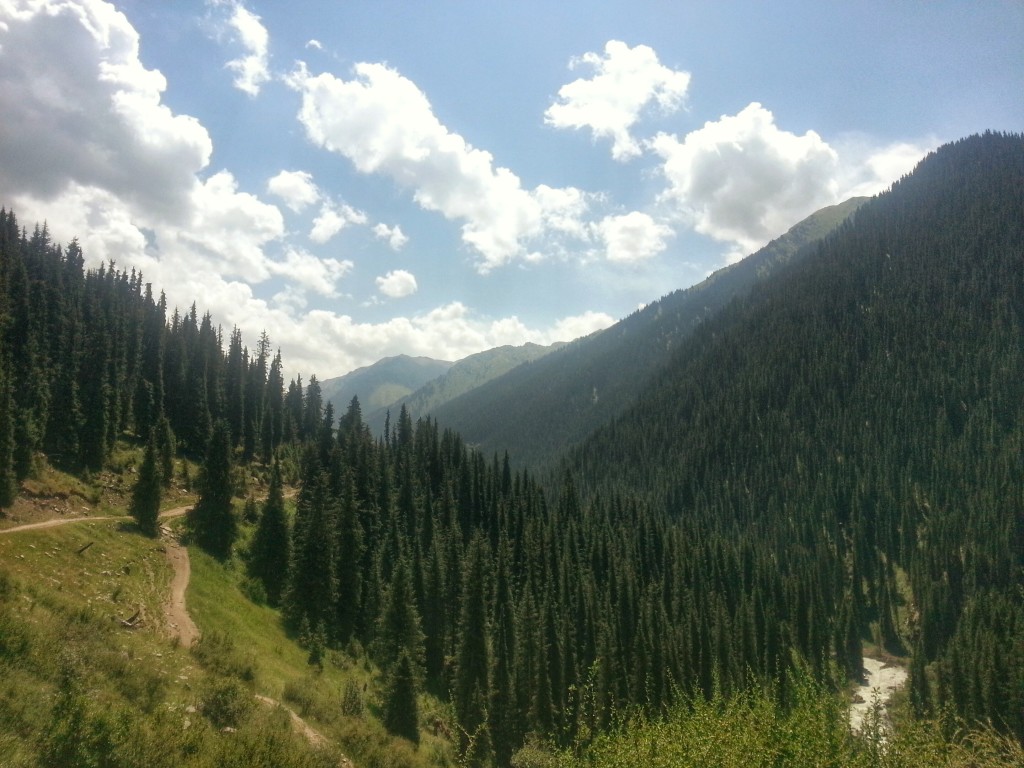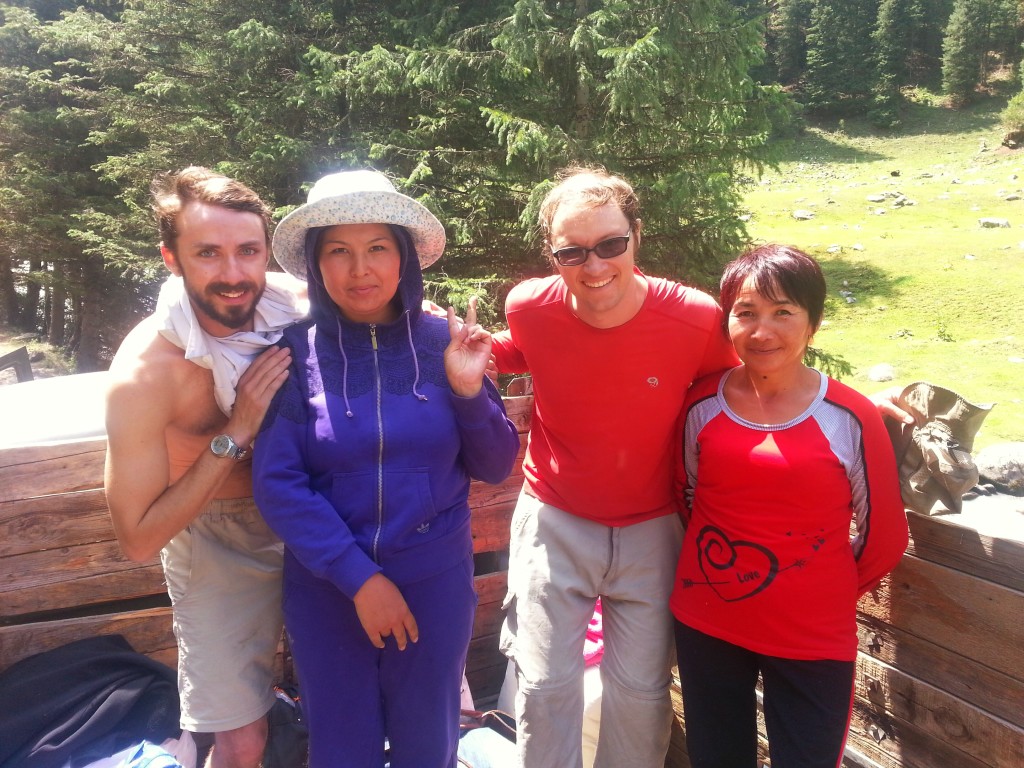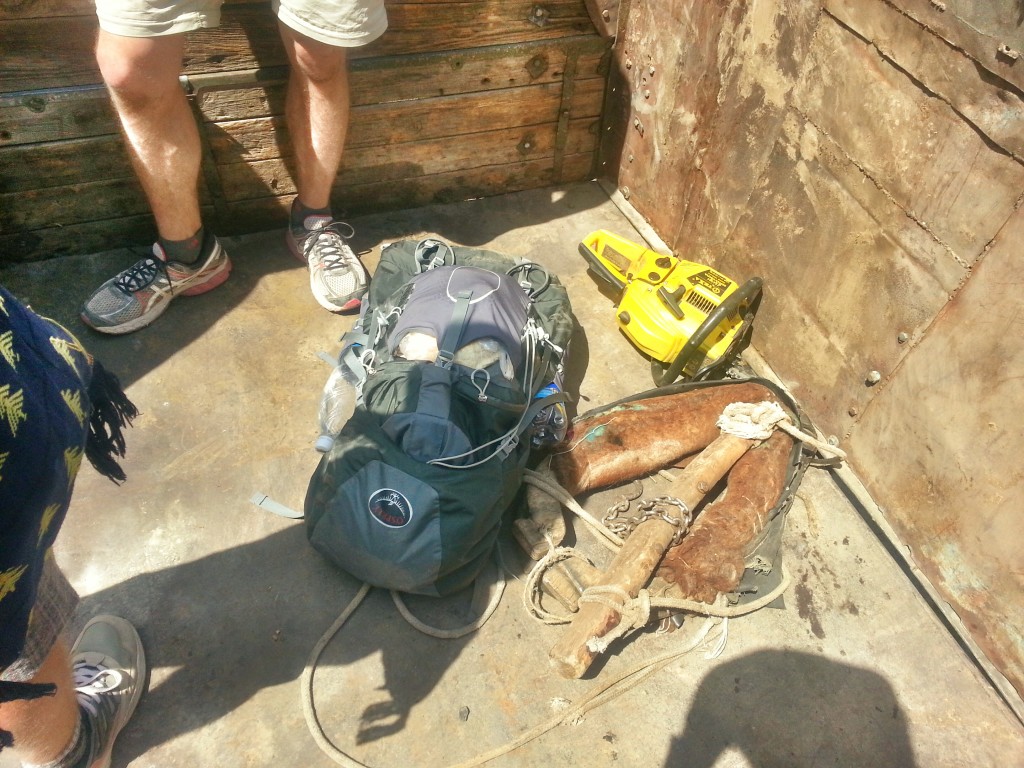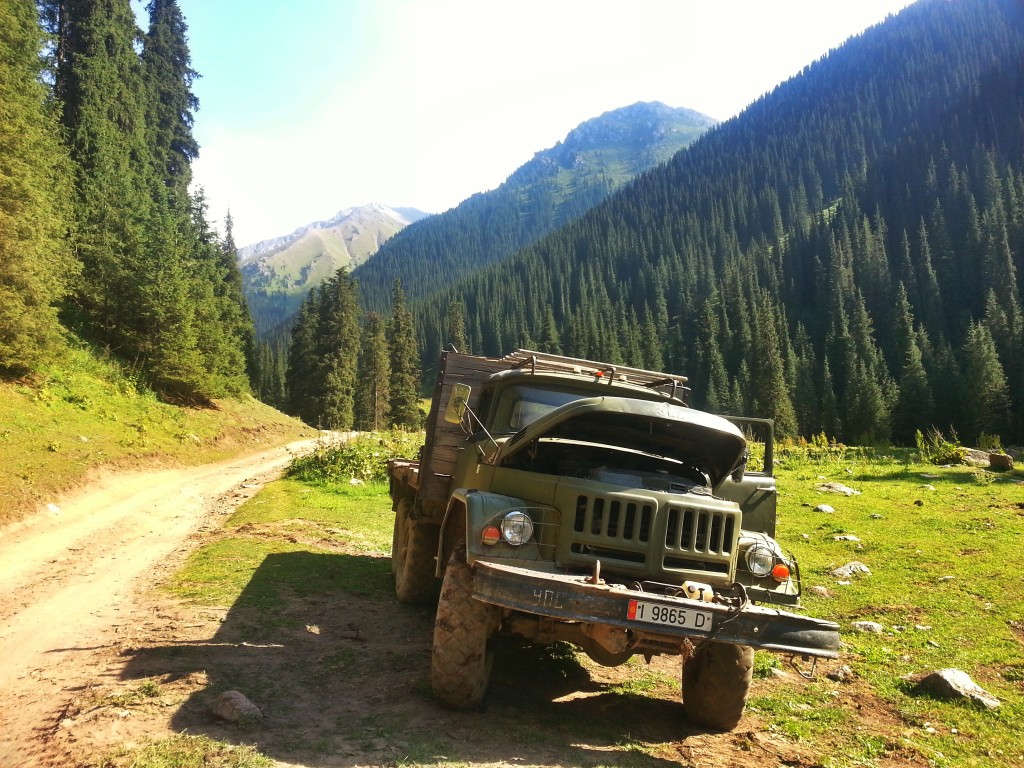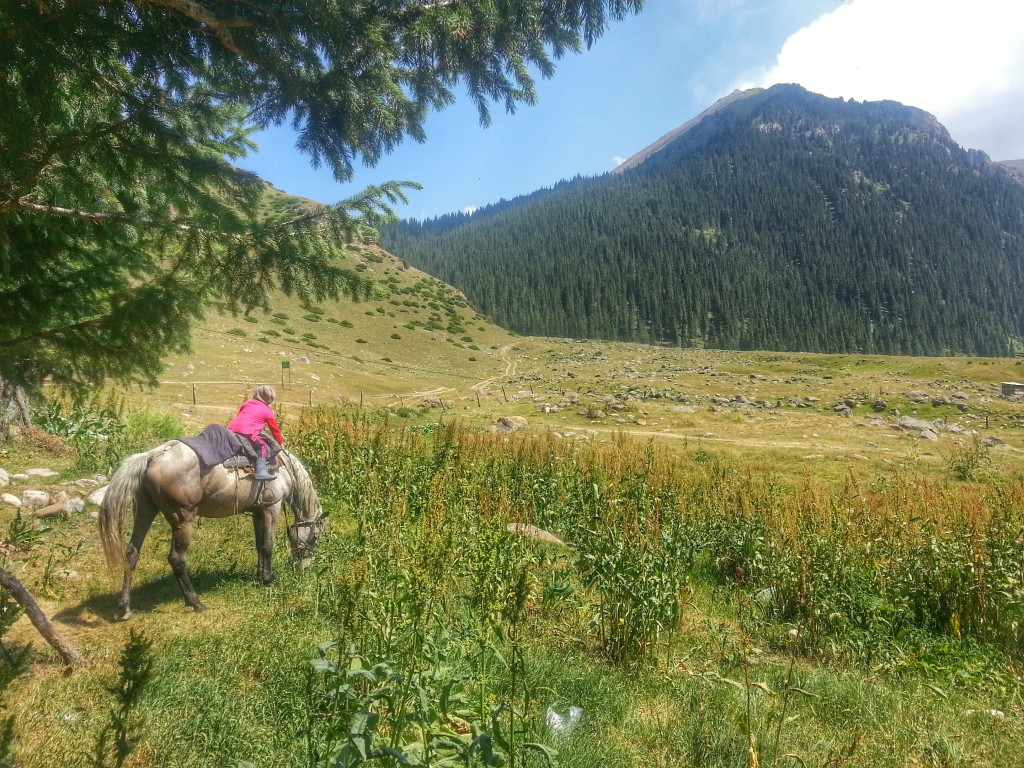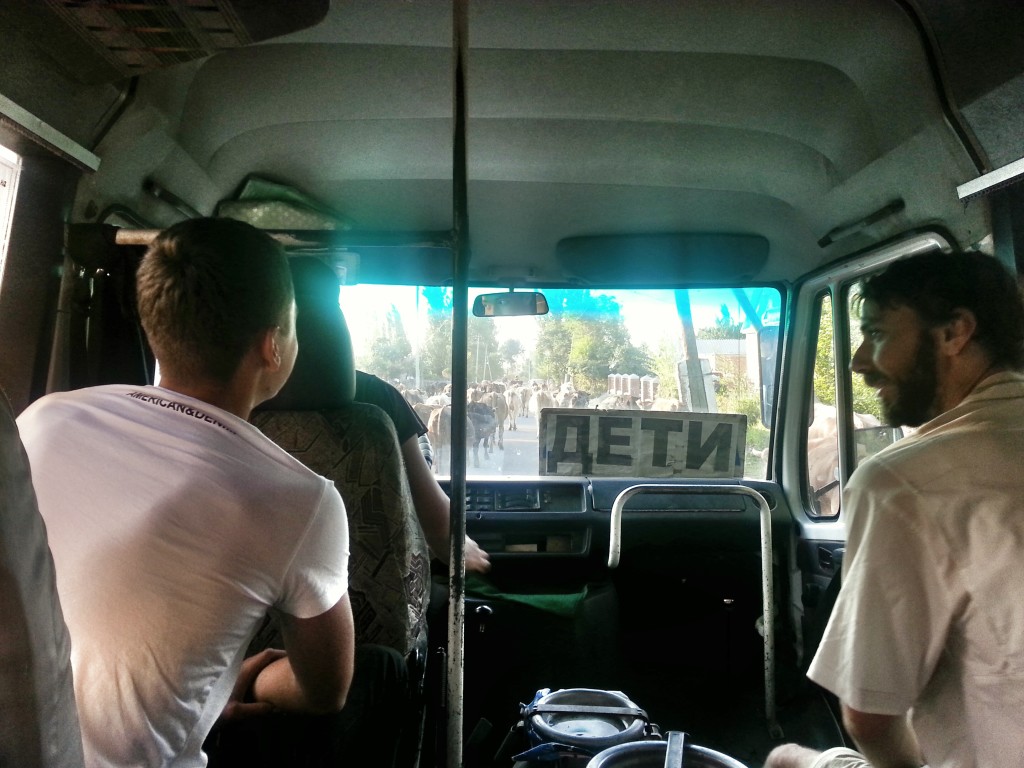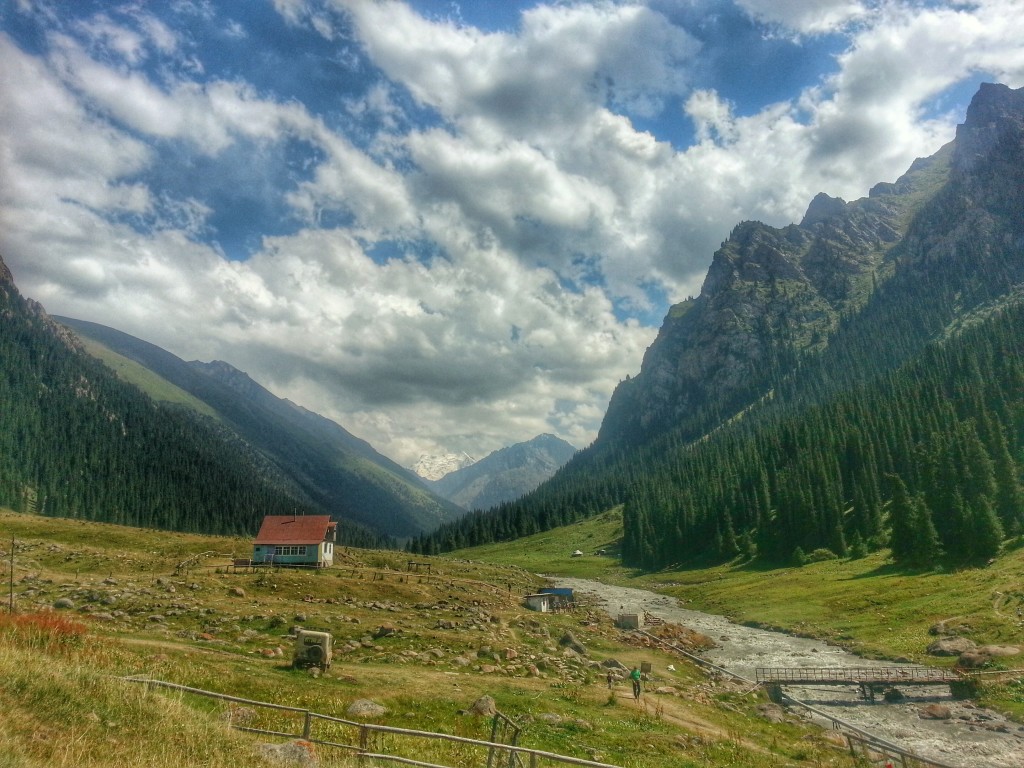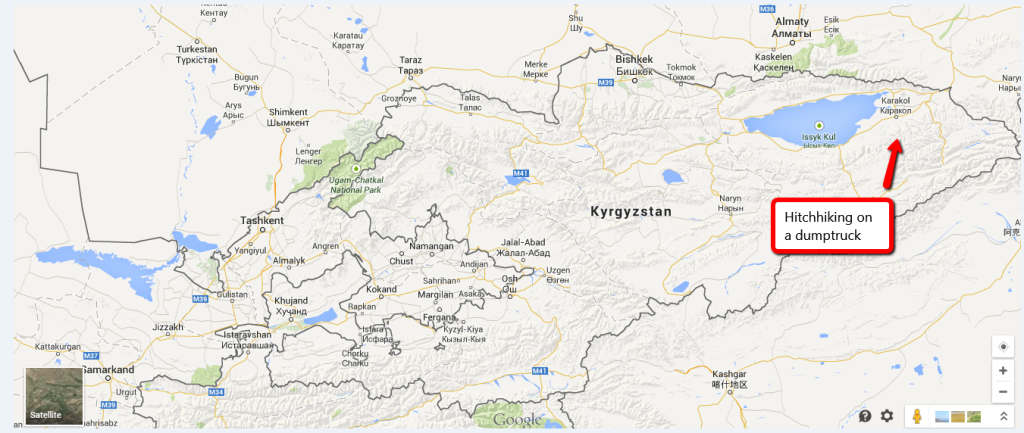 We took a marshrutka, a Soviet minibus, out of Karakol. The rundown town faded into the distance, and we were soon knee deep in the Kyrgyz countryside. Dirt roads, tall grass, short trees and fading jalopies. The marshrutka’s driver dropped us off at a handful of huts, smoke from a wood fire pouring out of one of their chimneys. Pointing up the dirt road, he forcefully intoned, “Arashan,” the name of the hot springs we wanted to hike to.
We took a marshrutka, a Soviet minibus, out of Karakol. The rundown town faded into the distance, and we were soon knee deep in the Kyrgyz countryside. Dirt roads, tall grass, short trees and fading jalopies. The marshrutka’s driver dropped us off at a handful of huts, smoke from a wood fire pouring out of one of their chimneys. Pointing up the dirt road, he forcefully intoned, “Arashan,” the name of the hot springs we wanted to hike to.
Cows were gnawing on the grass as we watched the marshrutka do a one eighty and return to the city. Several boys bounced over a fence surrounding their hut, playfully chasing after us as we began our hike, shouting at us in Russian and giggling to themselves in Kyrgyz. At a fork in the road, we looked quizzically at them, asking “Arashan?” They pointed us down the left fork, waving us off as we continued the hike.
The Arashan Valley is not far from China. As the crow flies, Arashan Hotsprings is only a hundred kilometers from the Chinese border. Had we continued past the hot springs to the end of the valley, we could have made the journey in several days.
Yet, close distance masked vast difference between Kyrgyzstan and China. The Arashan Valley was hardly touched by development, even though the hot springs was a well-touristed site. Despite this, the valley had been left with just a single, barely-passable dirt road carved into its side. Water rushing down the valley was still clean enough to drink. Though logging, probably illegal, had taken a few tentative baby steps, the mountainsides were still thick with conifers. In China, any tourist site of this import would have had a superhighway and a vast parking lot carpeting it. And no one would drink the water.
Thirty minutes into our hike, a hulking dumptruck lumbered passed us, two ladies standing in the truck’s bed, their knuckles red as they clutched the sides of the bed. After a short discussion through gesticulation with the driver, we hopped into the bed with the two ladies and continued towards Arashan. Hitchhiking in the bed of a dump truck along rough dirt roads is tough. Each time the truck ate a pothole or rolled over a rock, we had to steel ourselves, holding onto the bed’s sides in order to keep from getting tossed to the bed’s floor. And since this meant we were standing for the whole journey, riding was almost as tiring as walking and only slightly faster. Worse, the driver had thrown a chainsaw into the bed with us. So, each time the truck hit a bump, the chainsaw danced and we had to dance with it, dodging its teeth as it slinked towards our toes.
The ride took almost an hour and a half, but we had to make two stops along the deserted mountain path over that short journey. Either the dumptruck’s radiator was busted or the truck’s owners were just too poor to put in coolant, so every thirty minutes, they had to stop the truck, run down from the road to the stream so that they could draw water and pour it into the radiator to keep our engine from overheating.
We arrived at Arashan hot Springs. In the distance appeared a wall of snow-covered mountains, the border with China. The hot springs was nothing more than a series of wooden shacks, small rooms were you could pay to soak in the scalding waters. A tiny restaurant and a pension were attached to the hot springs, and the family that ran the place had a small, wood-frame house with a porch that looked like something off Little House on the Prairie. Otherwise, the valley was void of development. Tourist families piddled around at picnic tables, laughing, and the local’s toddlers, barely able to walk, were already riding horses to do farm chores.
After an hour at Arashan, we turned back and hiked out. I had been worried that the marshrutkas would no longer be in service by the time we got out, but Galen told me not to worry. We were both right.
Dusk was approaching when we finally got out of the Arashan valley and back to the handful of huts where the driver had dropped us off that morning. All of the marshrutkas had quit service, but one marshrutkas with a Russian guy and a Kyrgyz guy, were filling up water from the Arashan Stream. We asked if they were going back to Karakol, and they waved us into their marshrutka. As we hopped over the jugs of water that filled the aisle to get to seats, we realized that this was our last hitchhiking trip on this journey.
